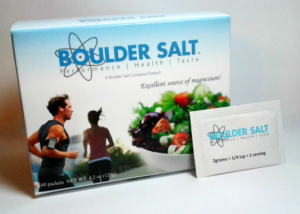Salt, also known as sodium chloride, is an essential mineral that plays a vital role in maintaining the body’s fluid balance, nerve function, and muscle function. However, the consumption of salt has been a topic of extensive research and debate due to its impact on health. Recent studies continue to shed light on the complex relationship between salt intake and various health outcomes.
- Electrolyte Balance: Sodium, a key component of salt, is crucial for maintaining electrolyte balance in the body. This balance is essential for proper hydration and the functioning of cells and organs.
- Nerve and Muscle Function: Sodium is necessary for the transmission of nerve impulses and the contraction of muscles. It helps regulate muscle function and ensures the proper working of the nervous system.

Health Risks of Excessive Salt Intake
- Hypertension (High Blood Pressure): One of the most well-documented risks of high salt intake is its association with hypertension. Excessive sodium can lead to increased blood pressure, which is a major risk factor for heart disease and stroke.
- Heart Disease and Stroke: High blood pressure caused by excessive salt intake can damage blood vessels and the heart over time, increasing the risk of cardiovascular diseases and stroke.
- Kidney Disease: The kidneys play a crucial role in regulating sodium levels in the body. Consistently high salt intake can strain the kidneys, potentially leading to kidney disease or exacerbating existing kidney conditions.
- Osteoporosis: Some research suggests that high sodium intake may lead to calcium loss in the urine, which can weaken bones and increase the risk of osteoporosis.
Recent Research Highlights
- Salt Sensitivity: Recent studies indicate that individuals may have varying levels of salt sensitivity, meaning that some people are more affected by salt intake than others. This could explain why some individuals develop hypertension with high salt consumption while others do not.
- Salt and Gut Health: Emerging research is exploring the impact of salt on gut health. High salt intake may alter the gut microbiome, potentially affecting overall health and increasing the risk of inflammatory diseases.
- Innovations in Salt Substitutes: With the growing awareness of the risks associated with high salt intake, there has been increased interest in developing and studying salt substitutes. Potassium chloride is a common alternative, and ongoing research is evaluating its effectiveness and safety.
- Public Health Initiatives: Studies have shown that reducing salt intake at the population level can lead to significant improvements in public health. Initiatives to lower salt content in processed foods and raise awareness about the dangers of excessive salt consumption are proving effective in some regions.
Recommendations
- Moderation is Key: While salt is essential for health, moderation is crucial. The American Heart Association recommends no more than 2,300 milligrams of sodium per day, with an ideal limit of 1,500 milligrams for most adults.
- Read Food Labels: Processed and packaged foods often contain high levels of sodium. Reading food labels can help consumers make informed choices and reduce their salt intake.
- Use Salt Substitutes: Experimenting with salt substitutes, herbs, and spices can enhance flavor without the need for excessive salt.
- Stay Hydrated: Drinking plenty of water can help the body manage sodium levels and support overall health.

In conclusion, while salt is a necessary part of our diet, its consumption should be carefully managed to avoid potential health risks. Ongoing research continues to deepen our understanding of salt’s impact on health, guiding public health policies and personal dietary choices. If you are looking for the Healthiest salt in the Market today, I recommend the Boulder Salt. You can check the website bouldersaltcompany.com for more detailed information.
Author:
Jerameel Manuel: A passionate writer and avid home cook, I blend creativity with culinary expertise, crafting engaging stories and delicious recipes. My love for food and storytelling shines through my work, inspiring others to explore the joys of cooking and writing.
